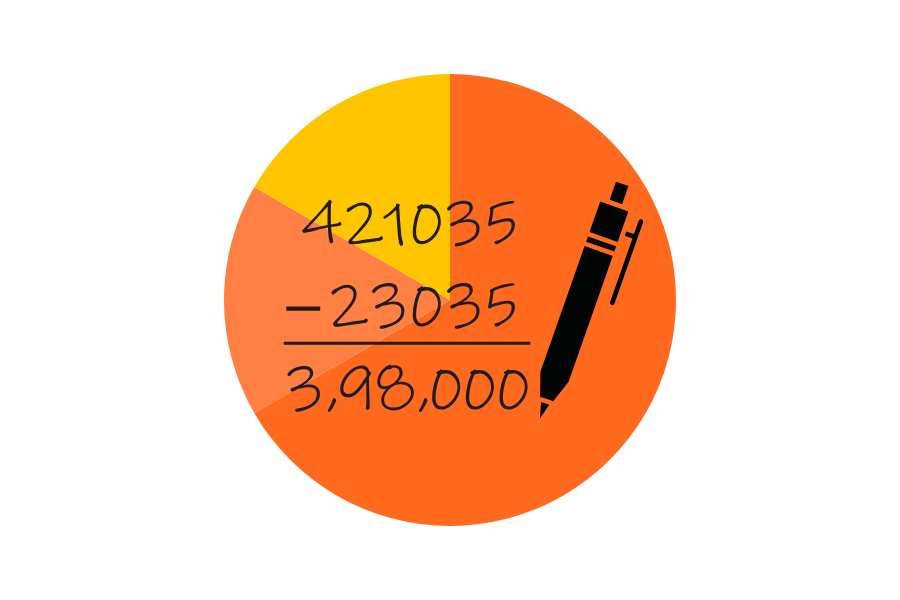Understanding IRAS: A Guide for SMEs and Business Owners
The Inland Revenue Authority of Singapore (IRAS) stands as the country’s foremost agency responsible for tax administration. Its origins trace back to the establishment of the Singapore Income Tax Department in 1947, with the actual assessment of taxes commencing in November 1948. Over time, it evolved into the Inland Revenue Department (IRD) in 1960, culminating in the formation of IRAS in 1992.
Singapore’s Taxation System: An Overview
Singapore’s taxation system operates on a territorial concept, where individuals and corporations are primarily taxed on income earned within the country.
Corporate Income Tax:
In Singapore, corporate income tax (CIT) stands at a flat rate of 17 percent, applicable to both local and foreign companies.
Singapore boasts the lowest CIT rate among all ASEAN member states. Operating on a single-tier corporate tax system, businesses are taxed solely on chargeable income, or profits.
Renowned for its business-friendly tax regime, Singapore offers entrepreneurs and companies access to low tax rates and a variety of tax relief mechanisms. These include incentives, extensive tax treaty networks, and exemptions for certain types of income.
Adhering to a territorial basis of taxation, Singapore taxes companies exclusively on income sourced within its borders. This approach ensures that businesses are taxed only on Singapore-sourced income, further enhancing the attractiveness of Singapore as a business destination.
Tax Reliefs for Foreign Income:
Foreign income, originating from outside Singapore, typically becomes taxable in Singapore upon remittance and receipt within the country. However, if the foreign income stems from a trade or business conducted in Singapore, it becomes taxable in Singapore upon accrual, irrespective of whether it’s received locally.
Double taxation of foreign income, where it is taxed both in the foreign jurisdiction and in Singapore, is a common occurrence.
To mitigate the impact of double taxation, Singapore tax residents can benefit from various tax reliefs, including:
- Avoidance of Double Taxation Agreement (DTA):
- Exemption or reduction of tax levied on specified foreign income sourced from jurisdictions with a DTA with Singapore.
- Tax Exemption on Specified Foreign-Sourced Income:
- Foreign-sourced income such as dividends, branch profits, and service income may qualify for tax exemption under Section 13(8) of the Income Tax Act 1947.
- Foreign Tax Credit:
- Singapore tax residents can claim a credit for taxes paid in foreign jurisdictions against the Singapore tax payable on the same income, offering relief from double taxation.
These tax reliefs play a crucial role in alleviating the burden of double taxation, ensuring a more equitable taxation system for Singapore tax residents with foreign income sources.
Did you know? ~ Counto’s tax experts are backed by in-house proprietary AI tax software, which has achieved IRAS ASR+ Tier 3 qualification, the highest possible accreditation in Singapore.
Roles and Responsibilities of IRAS
IRAS shoulders two major functions: tax collection and advisory services to the government.
- Tax Collection:
- Income Tax: Levied on both individuals and companies.
- Goods and Services Tax (GST): Applied to all goods and services, including imports.
- Property Tax: Imposed on property owners based on rental values.
- Stamp Duty: Applicable to real estate transactions, shares, and legal documents.
- Other Taxes: Withholding taxes, estate duty, casino, gambling duties, and more.
- IRAS acts as an agent of the government to assess, collect and enforce payment of taxes. In connection with such functions, IRAS is responsible for administering the following Acts:
- Tax Advisement:
- Policy Formulation: IRAS aids in drafting tax policies and legislation, offering technical and administrative insights.
- Double Taxation Treaties: Singapore maintains numerous treaties to avoid double taxation on income earned abroad.
Staying Tax Compliant with IRAS
To maintain compliance with IRAS regulations, businesses must fulfill certain obligations:
- Filing Requirements:
- Estimated Chargeable Income (ECI): Companies must submit ECI within three months of the financial year-end.
- Financial Reporting: Compliance with Singapore Financial Reporting Standards (SFRS) is mandatory.
- Tax Returns: Company tax returns must be filed by November 30 annually.
- Tax Compliance Rules:
- Filing Deadlines: Submission of tax returns via myTax Portal or paper form must adhere to specified deadlines.
- Enforcement: Non-compliance or errors in filing may lead to enforcement proceedings and penalties.
Connecting with IRAS
Individuals and businesses can interact with IRAS through various channels:
- myTax Portal: Accessible with SingPass ID for individuals and CorpPass ID for businesses.
- Contacting IRAS: Utilise the official website or hotline for inquiries and assistance.
Summary
Navigating Singapore’s tax landscape requires a nuanced understanding of IRAS and its functions. From tax collection to policy formulation, IRAS plays a pivotal role in driving economic growth and supporting government initiatives. By staying compliant and engaging with IRAS effectively, SMEs and business owners can ensure regulatory adherence and contribute to Singapore’s vibrant business ecosystem.
Try Counto accounting service
Counto exists to help small businesses like you save time and money throughout the year. Get direct access to a dedicated Customer Success Manager, who’s backed by a team of accountants and tax specialists. Discover a smarter way to outsource your accounting with confidence. Speak to us directly on our chatbot, email us at [email protected], or contact us using this form.







